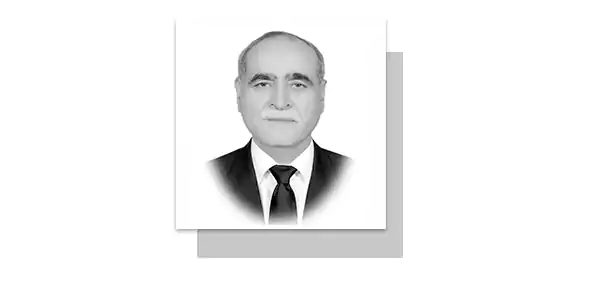IN the ever-turbulent world of international diplomacy, Pakistan has often stood at a complex crossroads — strategically significant, yet diplomatically sidelined.
But a quiet shift has taken place in recent months, and at the heart of this change is an unexpected figure: Senator Ishaq Dar. Traditionally seen as a financial technocrat, Dar’s elevation as both Deputy Prime Minister and Foreign Minister was initially met with raised eyebrows. Could someone known for budget sheets and bailout talks truly navigate the unpredictable terrain of geopolitics? As it turns out, Dar’s transition from finance to foreign policy may well become one of the most defining shifts in Pakistan’s diplomatic narrative.
The year began under the shadow of heightened tensions with India — marked by cross-border skirmishes and hostile rhetoric. Historically, Pakistan’s response to such provocations has been defensive and reactive. This time, however, Islamabad chose restraint, reason and a forward-looking tone. The Foreign Office, under Dar’s leadership, engaged with maturity, winning commendation from international observers. This shift marked a new diplomatic rhythm — measured, pragmatic and principle-driven.
Pakistan’s consistent messaging on regional peace, responsible state behavior and economic cooperation resonated from the United Nations to the Gulf Cooperation Council. Remarkably, what began as a regional standoff evolved into a platform for broader global re-engagement. Symbolizing this renewed confidence was Pakistan’s modest rise in global passport rankings — a small but telling sign of how the world perceives the country’s stability and governance. More importantly, global financial institutions began revisiting their earlier skepticism. The IMF, World Bank and others acknowledged a newfound synchronization between Pakistan’s economic and diplomatic messaging — a synergy that had Dar’s imprint. Under his leadership, Pakistan pursued trade diplomacy with new vigour — from Gulf energy partnerships to Central Asian transit corridors. A trilateral framework involving Afghanistan and a key regional player helped de-escalate tensions on a long-volatile border, offering hope for peace and economic integration.
Further west, relations with the United States entered a quieter but more meaningful phase. The usual mistrust gave way to engagement on counter-terrorism, climate resilience and investment. For the first time in years, Pakistan’s outreach appeared less about firefighting and more about forward planning. Parallel to Dar’s diplomatic strides has been the behind-the-scenes military diplomacy led by Field Marshal Syed Asim Munir. As Chief of Army Staff, Munir has brought strategic coherence to Pakistan’s foreign policy. His focus on economic security, regional stability and internal unity has given Dar’s diplomacy a solid foundation of trust.
From bolstering defence ties with Gulf nations to quiet coordination with China, Central Asia and Western powers, Field Marshal Munir’s statesmanlike approach has projected Pakistan as a stabilizing actor rather than a flashpoint. This civilian-military harmony — often elusive in the past — has amplified Pakistan’s credibility abroad. Initially dismissed as a misfit in the world of foreign affairs, Dar gradually defied the sceptics. His understanding of international finance, far from a handicap, became an asset. Having negotiated with the IMF and World Bank for decades, Dar approached diplomacy with a results-driven mindset.
He engaged counterparts not just in political talk but in economic alignment — linking foreign relations with trade, investment and development. He championed the concept of “trade corridors as peace corridors,” advocating a foreign policy that promotes connectivity, commerce and cooperation over confrontation. Moreover, Dar’s technocratic discipline introduced a degree of order in foreign engagements. Strategic dialogues were tied to tangible outcomes. Multilateral forums were used not just for symbolic statements, but to craft partnerships grounded in mutual benefit.
Dar’s tenure, though still in its early stages, is already being seen as a test case for continuity in foreign policy leadership. Too often in Pakistan, diplomatic momentum has been derailed by abrupt political changes or reactive policies. What’s emerging now is a different paradigm — one of steady, purposeful engagement. Whether coordinating with Gulf allies, voicing principled stands on Kashmir and Palestine, or negotiating trade frameworks in Central and South Asia, Dar has projected a composed, pragmatic Pakistan — one that seeks to shape outcomes rather than simply endure them. His engagements are not flamboyant, but they reflect seriousness and strategic alignment. While the old model of loud posturing yielded temporary headlines, this new model is earning quiet respect.
Pakistan’s diplomatic history has often been shaped by crises — war, sanctions, global isolation. But under Ishaq Dar’s stewardship, supported by the strategic vision of Field Marshal Syed Asim Munir, a more proactive and integrated foreign policy has taken root. Dar’s approach — blending economic logic with diplomatic poise — is helping Pakistan move from the periphery of global politics to a more engaged and relevant position. In the process, he is also redefining his own legacy: from a number-crunching finance minister to one of Pakistan’s most consequential foreign policy architects. The lesson is clear: when leadership is backed by experience, clarity and coordination, even the most unlikely figures can chart a new course for national resurgence. Pakistan, it seems, is learning to speak not only more wisely on the world stage — but also more purposefully.
—The writer is a Supreme Court lawyer and former member & Chairman Standing Committee of Azad Jammu and Kashmir Council. Islamabad
(khaliqwasi786@gmail.com)


















